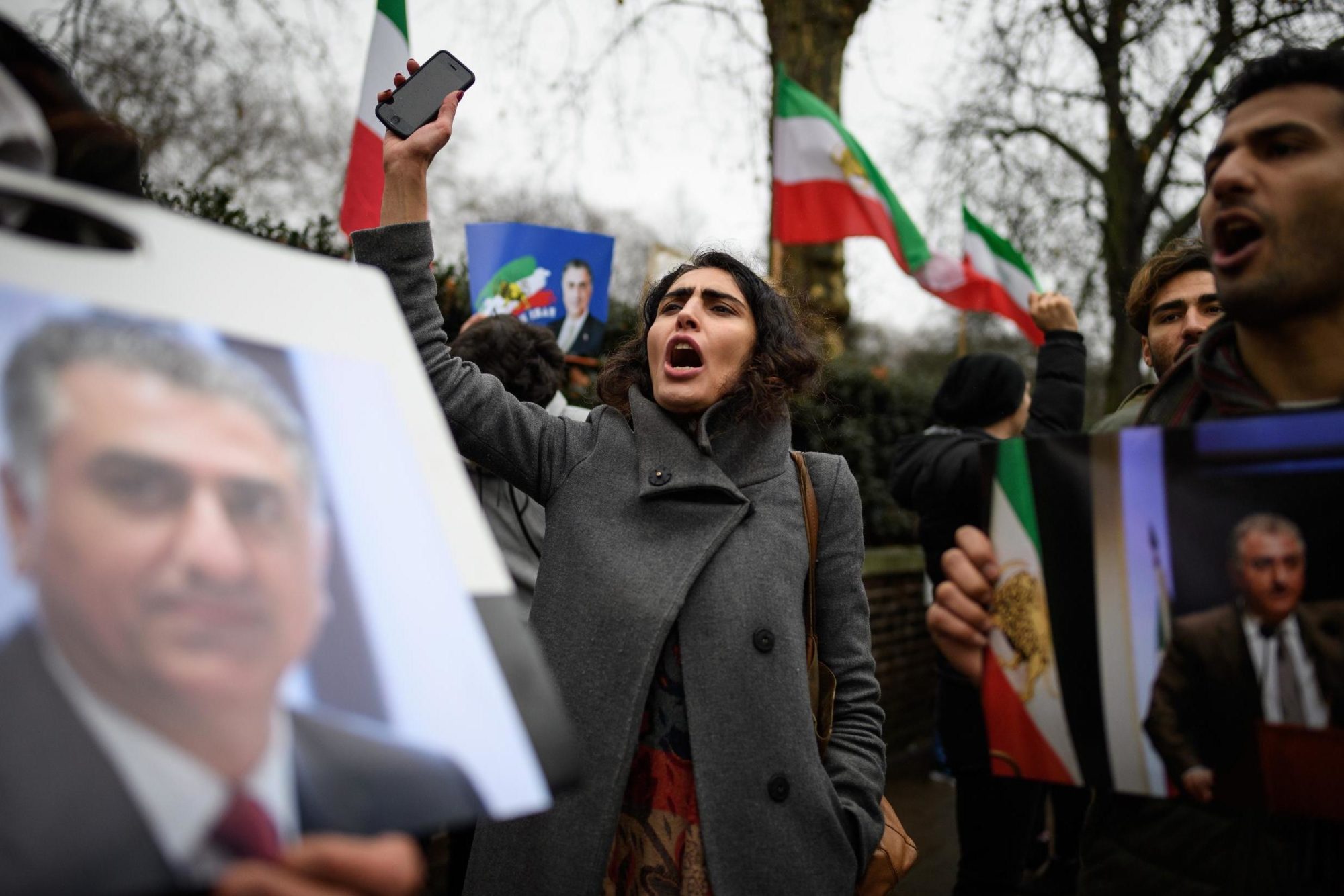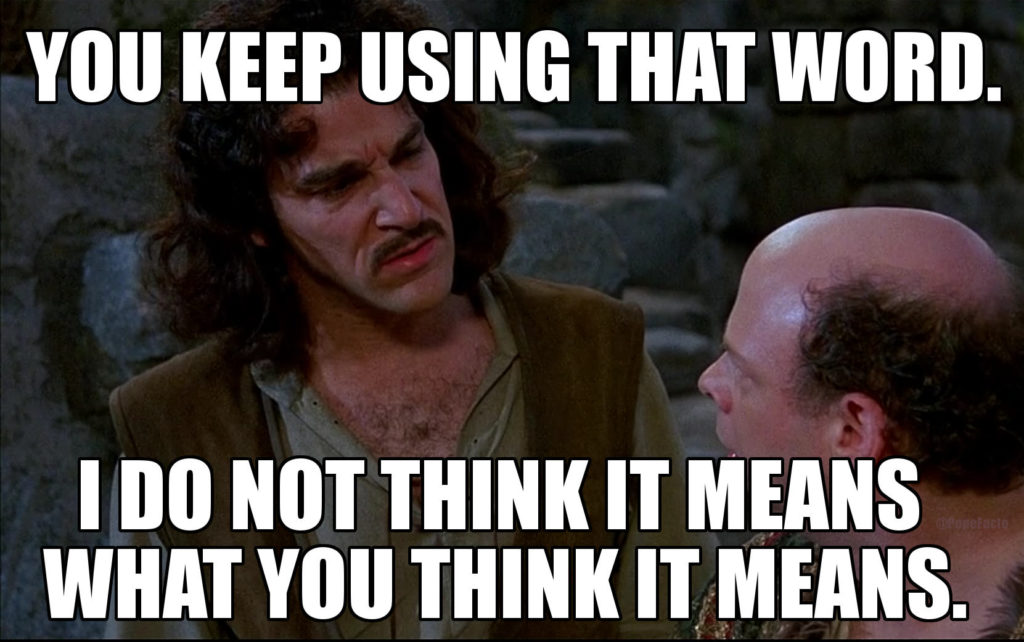It’s a commendable ambition, to “support Iranian voices” as Secretary of State Mike Pompeo contended in an anti-Iranian government soliloquy July 22 in California. President Donald Trump’s executive actions and threats, however, along with vitriolic and preaching speeches by Pompeo and other senior officials, do little to raise the voices of either progressive Iranians or the over one million Iranian-American diaspora.
Whereas one of Obama’s first major engagements with Iranians in 2009 was to recognize Nowruz, a Persian holiday, the Trump administration’s first act toward Iranians, only seven days after taking office, was to ban them outright. Because of the rushed implementation of an already ineffective and unjust ban on nationals from politically targeted Muslim-majority countries, Iranians — who were disproportionately affected — had their entire lives thrown into mayhem, never knowing if the policies were going to change to allow students, dual-nationals who held citizenship abroad, hopeful immigrants who had spent years in the application process, grandmothers, or even children seeking life-saving medical care. Summarizing the community’s feeling of despair, Elham Khatami, a 30-year-old Iranian-American whose family was prevented from attending her long-planned DC wedding, said “I feel tired of being cast aside and of being forced to prove my humanity at every turn.”
Then, despite sweeping counsel to the contrary, Trump withdrew the US from the Iran nuclear deal. Under this agreement, Iran had submitted to unprecedented international inspections that verifiably limited its nuclear program in the hopes that it could be integrated into the international economy. Iranians also hoped that globalization could gradually help to reform their country into a more transparent and progressive society, slightly unclenching the fist of the hardliners. When Trump unilaterally withdrew from the deal—without provocation from Iran—it dashed the hopes of Iranians that their opportunities and fortunes would improve. The voices of Iranians—who had largely been supportive of the deal—had been disregarded again, and the fist of the hardliners clenched once more.
Most recently, Secretary of State Mike Pompeo’s July 22 speech attempted to convey a veneer of engagement; however, it could have gone far further in truly “supporting Iranian voices,” – since that was, after all, the title of his speech. Rather, the event consisted of four white men raging against the regime and preaching its evils and corruption to a choir that is well aware. Pompeo lauded the administration’s increasing of sanctions and touted a new Trump-administration-created 24/7 Farsi channel, which is all somehow supposed to help Iranians. Not a single Iranian or Iranian-American was brought on stage, and only three were briefly mentioned at the end of the speech, seemingly more out of obligation than a true desire to raise Iranian voices.
At the conclusion of the public portion, the Twitter-verse buzzed with Iranians, pundits, and think tankers alike all providing their own two cents on what this potential outreach to Iranian people could mean. But not even a few hours later, the façade of engagement was shattered by a whiplash-inducing and unhinged tweet from the sitting US President IN ALL-CAPS which threatened war against Iran. In the same 3 hours, the Trump administration couldn’t even clarify whether they want to support Iranian people fighting for their freedoms, or bomb them.
To Iranian President Rouhani: NEVER, EVER THREATEN THE UNITED STATES AGAIN OR YOU WILL SUFFER CONSEQUENCES THE LIKES OF WHICH FEW THROUGHOUT HISTORY HAVE EVER SUFFERED BEFORE. WE ARE NO LONGER A COUNTRY THAT WILL STAND FOR YOUR DEMENTED WORDS OF VIOLENCE & DEATH. BE CAUTIOUS!
— Donald J. Trump (@realDonaldTrump) July 23, 2018
It is human nature for proud citizens to set aside their internal differences and unite against a common enemy. That is why the Islamic regime has tried so hard for so long to propagandize the United States as its most evil enemy. For many years, young Iranians ignored the government and longed for the chance to come to America and enjoy its freedoms and opportunities, or to be able to one day reflect American values in Iran. But when Trump administration officials threaten war with the Iranian people, they undermine the very freedom-seeking voices they claim they seek to support. Iranians will continue to unite in a “rally around the flag” effect against America, as they have been doing since the Trump administration came into office, and the United States will lose some of its staunchest allies in its decades-long endeavor for change: the people.
Right now, the time is ripe for change in Iran. Protests inside the country have been ongoing since January and deserve more coverage. Iranians need Americans and the Trump administration to hear, listen, and raise their voices. Iranians do not need Trump administration officials to act like they know what is best for the Iranian people. Let the Iranian people, who know what they want, bring their own vision to fruition, so that when freedom and change do come, they are not imposed upon Iranians by outsiders (never forget the coup of 1953). Respect for Iranian history and culture will take the Trump administration a long way.
Meanwhile, it might help to remember that the Iranian people hear you, but they also see you. The Trump administration can exhort all it wants about “supporting Iranian voices” or broadcasting in Farsi that it stands with them. But Iranians are not blind. When they see the way the president’s policies affect Iranians and Iranian-Americans, and they see him threatening to increase sanctions on or bomb them, then they feel that the only voices in Iran the Trump administration is supporting are those of the hardliners.
Shervin Taheran is a second-generation Iranian-American who hopes that one day she’ll be able to see the US Embassy open in Tehran once again. In the meantime, she’s working to rid the world of nuclear weapons as the program and policy associate at the Arms Control Association. The views and opinions expressed in this piece do not necessarily reflect those of the Arms Control Association.















